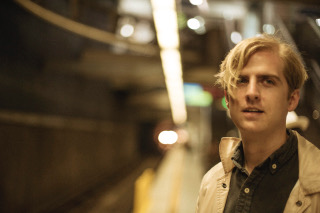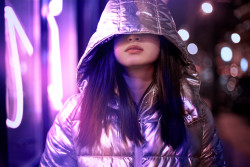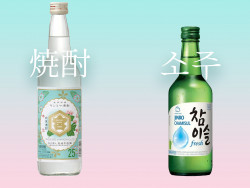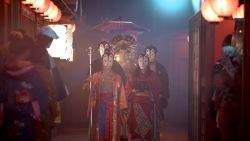
July 30, 2020
Christian Lee Hutson: Beginners
The debut album of Phoebe Bridgers’ creative prodigy
By Metropolis
Feature image credit: Gus Black.
You can’t help but appreciate the journey it took to make Christian Lee Hutson’s debut album, Beginners, as much as the finished product itself. The soft indie-folk sound, nostalgic, introspective lyrics and its production process are all entwined within the narrative of the L.A.-based artist’s own past. Some of the songs had been slowly taking shape since 2014 and the stories they recount trace way back into Hutson’s high school memories — still as raw and sharp as the day they happened thanks to Hutson’s delicate timbre.
In 2019, Hutson toured with emo-folk-sweetheart-of-the-indie-world Phoebe Bridgers and co-wrote songs for her other groups, boygenius and Better Oblivion Community Center. It was on this tour that Hutson could flex his solo-artist wings and share his work with Japan, even before the album was released. As best friends and past collaborators, it’s no surprise that Bridgers was also the producer for Beginners, guiding Hutson into the spotlight and brushing the album with her minimal palette and trademark streaks of lyrical rumination and self-sabotage.
Throw in the likes of Conor Oberst, Lucy Dacus and Meg Duffy, in addition to Nathaniel Walcott of Bright Eyes, and Beginners really does plant itself as what its name suggests, a solid start for Hutson to springboard into the indie-folk /alt-pop pool.
Metropolis caught up with Hutson amidst the COVID-19 stay-at-home-blues to discuss this debut, and the years of work that went into its creation.
Metropolis: How was it coming to Japan in February 2019 as a support act for Phoebe Bridgers?
Christian Lee Hutson: That was my first time in Japan. I’d always wanted to come. It was awesome. We only got to come to Tokyo but it was like a lifelong dream come true. I just walked around places like Shibuya almost everyday, looking at the shops and everything. We made a plan to go to Golden Gai [in Shinjuku] because my friend went when he had been [to Japan] on tour in the past. We liked it so much on the first night that we ended up going back every night and popping into as many little bars as we could. I don’t really drink but it was just really fun because we don’t have anything like that in the U.S.
View this post on Instagram
M: Your debut album only came out this May, so what kind of material were you playing in Japan?
CLH: We had already finished recording my album, so I was playing a lot of that stuff, but I had no albums with me and I didn’t even have any songs officially out, so no one knew anything I was doing [laughs].
I thought it was really cool though and the audience at both of those shows were the quietest, best audience I’ve ever played for. All over the world you go and play and people are usually quite loud, especially when there is a quiet, solo acoustic person playing. That was kind of a surreal experience I was grateful for.
M: Congratulations on releasing the album. How does it feel now that your own material is finally out after about five years of working on it?
CLH: Thanks. It feels really good. It’s very weird for me because I worked on it for so long, and there was such a large gap from when we finished it to when it came out, so I was able to hear it for the first time again and be excited about it. I feel like the high school version of myself would be very proud of the album because it’s a mixture of all of the music I used to listen to at that age. I loved Bright Eyes, Elliott Smith and quiet, sad music with strings and stuff. And sort of indie rock stuff. There’s a bit of that in my record, too.
M: You mentioned your high school self would be proud, and a lot of the album is looking back into the past. There’s a lot of memories, nostalgia and introspection. Was that a conscious decision or something that naturally happened as you made these songs?
CLH: Looking back is really natural for me. I do that a lot; it takes me a long time to process things that have happened in my life emotionally. Some people are able to write about the future really well but I don’t think that I’d feel authentic doing that because the past is simultaneously malleable (in that you’re never really remembering things exactly truthfully) but also in that it shaped who you are today.
M: Despite this focus on the past, you titled it Beginners. What’s behind that?
CLH: Like this notion of wanting to start over or with the cycles that you go through in life, you end up sort of back where you started from. I named it [the album] after an American short story collection called “Beginners” by Raymond Carver. All of the stories in it are very matter-of-fact and not trying to be manipulative. The narrator is not trying to influence the reader at all and a lot of the songs [in my album] sound like that kind of approach to me, so it’s a nod to that [Carver] as well.
M: Your lyrics do tend to follow a narrative-driven structure, almost like each is a short story in itself. Did that concept come from Carver too?
CLH: I think a lot of it did come from Carver. Before reading a bunch of fiction I wasn’t writing a lot of narrative style, it was a lot of first person, confessional style things. The narrative style just became an interesting way for me to express things that I didn’t really know were there in a way that confessional style can sometimes sound too self-congratulatory.
M: Your album was produced by Phoebe Bridgers, so you must have really let her into your world when you shared the creation of these songs with her. How was it working with her?
CLH: It was great. Phoebe is my best friend who I just have fun with and trust. There’s so many horror stories of people working with their producers and crazy things happen like them being really abusive and I got to avoid all of those things by working with my closest friend. We already align on a lot of stuff, musically and song-writing wise, so we just got to make the record that we both would have liked when we were kids.
M: The songs feel like they each have a great balance. Nothing feels too little or too much. Is that something that came from working together with Bridgers?
CLH: I feel like that is Phoebe’s biggest strength. I don’t really know that skill [laughs]. That’s part of my problem with recording, part of the reason why I’d recorded the songs so many times before Phoebe started working on it; I just didn’t know when to quit or know what was too little or too much. Phoebe has a lot of restraint in her production style. Just because you can do something doesn’t mean you should. She follows that rule, she’s a good listener and she knows what’s enough to draw you in but not too much so that you’re engaged in the wrong parts of the song.
M: You’ve been working on a lot of other people’s projects in the past few years, including touring with Bridgers. How did you know it was the right time to create and release your album now?
CLH: We got to the end of making the record and the gigs for that tour with Phoebe and Connor [Oberst] wrapped up so it just seemed like a good time. I started working on some of the songs for it as far back as 2014, but some were written as recently as a year and a half ago.
M: Now Beginners is out but the coronavirus pandemic means you can’t tour the material just yet. Have you been using your time at home to focus on your future music?
CLH: For the beginning of the lockdown, I was just trying to read and get through the days in our little apartment. I just recently started reading novels again instead of short stories because my attention span has been fucked because of the internet and how much I use it. I’ve been reading a lot of Murakami’s novels and mainly fiction. It’s already starting to bring me some song inspiration. I plan to start recording again soon and to start making a second record. Considering it took me five years to make this one I think I should get a jump on it [laughs].
christianleehutson.com
Listen to Beginners on Spotify
@metropolitokyo







